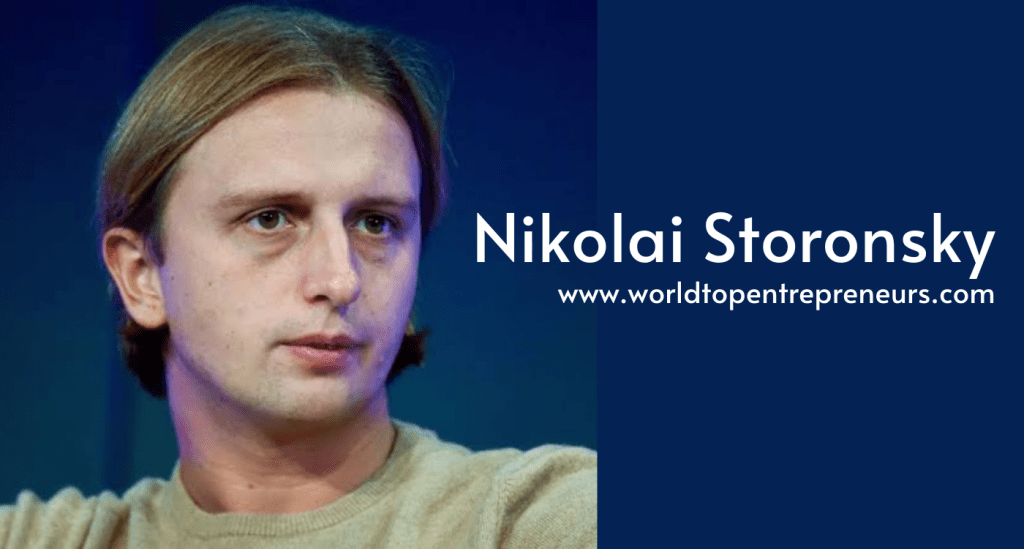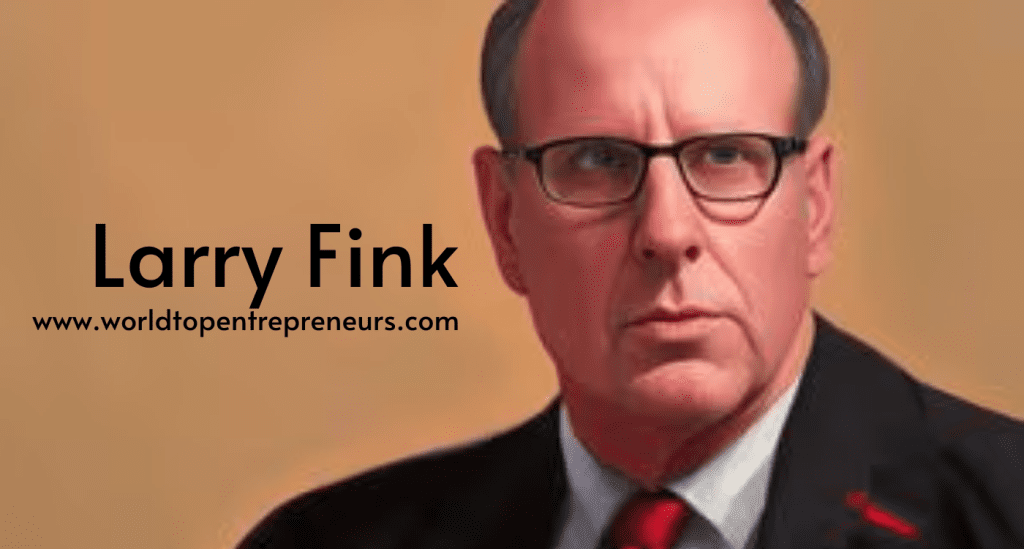Nikolai Storonsky, the co-founder and CEO of Revolut, is one of the most influential figures in the fintech world today. Under his leadership, Revolut has grown from a small startup into one of the most recognized names in digital banking, disrupting the financial services industry globally. Storonsky’s entrepreneurial journey is a story of vision, perseverance, and a relentless drive to reshape how people manage their finances.
Early Life and Educational Background
Born in Moscow, Russia, in 1984, Nikolai Storonsky’s early years were shaped by a strong academic background. Growing up in a family that valued education, Storonsky excelled in mathematics and science. His intellectual curiosity led him to pursue a degree in Physics at the prestigious Moscow Institute of Physics and Technology (MIPT), one of Russia’s top universities.
Storonsky’s keen interest in technology and finance led him to further his studies in the UK, where he attended the University of London’s Birkbeck College. He earned a degree in Economics and Finance, providing a solid foundation for his future endeavors in the financial sector. His technical expertise in physics, combined with his finance background, would later play a significant role in his approach to the world of fintech.
Early Career and Business Background
Before founding Revolut, Storonsky gained valuable experience working in the finance and investment sectors. His career began as a trader at the Russian investment bank, Credit Suisse, where he honed his skills in financial markets and risk management. This experience would prove invaluable in understanding the inefficiencies and complexities within the traditional banking system, laying the groundwork for his future vision of financial disruption.
Following his time at Credit Suisse, Storonsky worked at Deutsche Bank as a trader in foreign exchange markets. While the experience was rewarding, Storonsky grew increasingly frustrated with the limitations and inefficiencies of traditional banking and financial systems. He began to realize that existing financial products were not only outdated but also lacked transparency, high fees, and accessibility for many people. This realization would lead him to pursue a more entrepreneurial path.
The Birth of Revolut
In 2015, Nikolai Storonsky, together with his co-founder Vlad Yatsenko, launched Revolut, a digital banking platform designed to offer users a better way to manage their money. The idea was simple but revolutionary: provide a mobile-first, global financial service that allowed users to exchange currencies, spend abroad, save, invest, and even buy cryptocurrencies—all without the high fees typically associated with traditional banking.
Revolut began as a solution to the high fees associated with international money transfers and foreign exchange. Storonsky’s goal was to eliminate unnecessary intermediaries and reduce the costs of currency exchange, which were often opaque and expensive. The platform offered real-time, borderless, and low-cost transactions, making it particularly appealing to people who frequently traveled or made international payments.
The company’s first product was a prepaid debit card that allowed users to hold and exchange multiple currencies at competitive rates. It quickly gained traction, and Revolut expanded its offerings to include a range of banking services, such as savings accounts, insurance, stock trading, and cryptocurrency exchange. Revolut’s rapid growth was fueled by a customer-centric approach, offering an intuitive app and transparent pricing, which set it apart from traditional banks.
Key Struggles and Challenges
Despite its success, Storonsky’s journey with Revolut has not been without its challenges. As with many ambitious startups, Revolut faced significant hurdles in its early years. The financial industry, dominated by large traditional banks, proved to be a tough environment for a young tech company to disrupt. Navigating complex regulatory landscapes across different countries was one of the first major hurdles Revolut encountered.
One of the company’s biggest challenges was the regulatory approval process. Revolut had to secure licenses to operate in various countries and contend with different financial regulations, which required both time and significant legal resources. Despite these challenges, Storonsky’s relentless pursuit of innovation ensured that Revolut expanded rapidly across Europe and eventually to other global markets.
Another key challenge was the company’s growth and the need to scale its operations while maintaining customer trust. Early on, Revolut faced criticism regarding its customer support and the reliability of its services. These growing pains were common in the fintech sector, but Storonsky’s commitment to improving the product and user experience ensured Revolut’s survival and eventual dominance in the market.
Success and Expansion
Nikolai Storonsky’s vision and determination paid off as Revolut became one of the most successful fintech companies in the world. The company’s product offering expanded to include a vast array of financial services, from international money transfers to cryptocurrency trading and even stock market investments. Revolut’s mobile-first approach and ability to offer a wide range of services under one roof proved highly attractive to customers seeking convenience and low fees.
By 2017, Revolut had achieved unicorn status (a private company valued at over $1 billion), a major milestone for any startup. The company continued to raise significant funding, attracting investors like Index Ventures, DST Global, and TCV, and expanded its services to new markets, including the U.S., Canada, Singapore, and Australia.
In 2020, Revolut reached a major milestone, with over 10 million users worldwide. The company also became one of the fastest-growing financial technology startups in Europe, thanks to its ability to attract both retail and business customers. Revolut’s success was not just a result of its innovative product suite but also its ability to offer a seamless, low-cost alternative to traditional banking.
As of 2023, Revolut has expanded into a variety of financial services, including savings, investment, insurance, pensions, and even credit. With a valuation of over $33 billion, the company has continued to attract significant attention from investors and analysts alike. Its success is a testament to Storonsky’s leadership and vision, as well as the growing demand for digital-first financial services.
Nikolai Storonsky’s Leadership Style
Storonsky’s leadership style is often described as intense, data-driven, and deeply committed to the company’s mission of disrupting the financial services industry. He is known for his hands-on approach, often making critical decisions based on data rather than intuition or gut feeling. Storonsky’s vision for Revolut has always been clear: to create a global financial platform that empowers users to take control of their financial lives without relying on traditional banks.
Storonsky has also maintained a strong focus on technology, leveraging automation and artificial intelligence to optimize operations and improve user experience. He believes that the future of banking lies in building a fully digital platform that offers seamless and low-cost services to users across the world.
Future of Revolut and Nikolai Storonsky
Looking forward, Revolut shows no signs of slowing down. With plans for further international expansion and continuous development of new financial products, the company remains poised to further disrupt the financial industry. Storonsky has expressed interest in expanding Revolut’s services into new areas such as lending, as well as enhancing its AI and machine learning capabilities.
As for Storonsky, his entrepreneurial journey has just begun. While Revolut has already changed the landscape of banking, it seems clear that the company’s founder is just getting started. His commitment to creating a financial ecosystem that is transparent, user-friendly, and accessible to all continues to drive Revolut forward.
Conclusion
Nikolai Storonsky’s entrepreneurial journey is a remarkable one. From his early days in Russia to building one of the most disruptive fintech companies in the world, Storonsky has shown what can be achieved with vision, perseverance, and an unwavering belief in the power of technology to transform industries. Revolut’s success is not only a testament to his leadership but also to the growing shift toward digital-first financial services. As the world of banking continues to evolve, Storonsky’s influence is sure to play a significant role in shaping the future of finance.





















